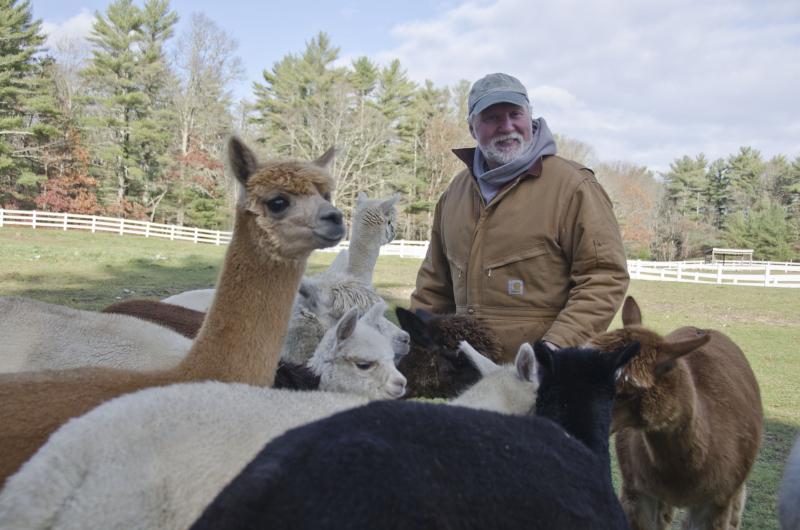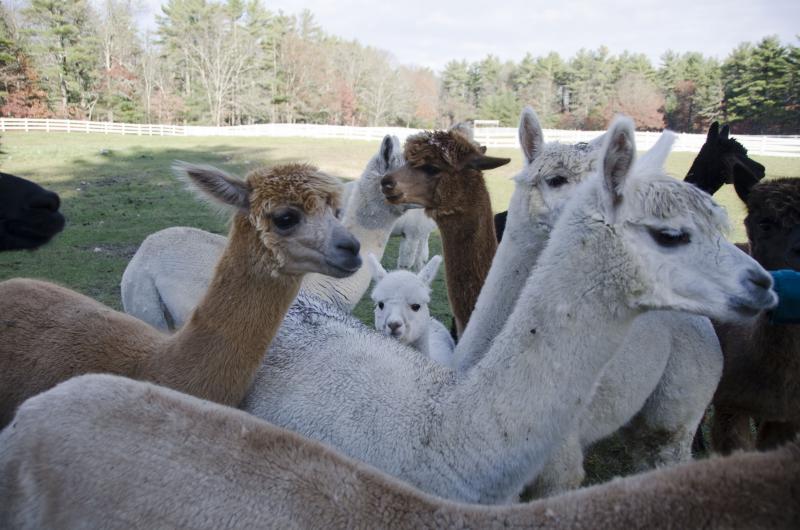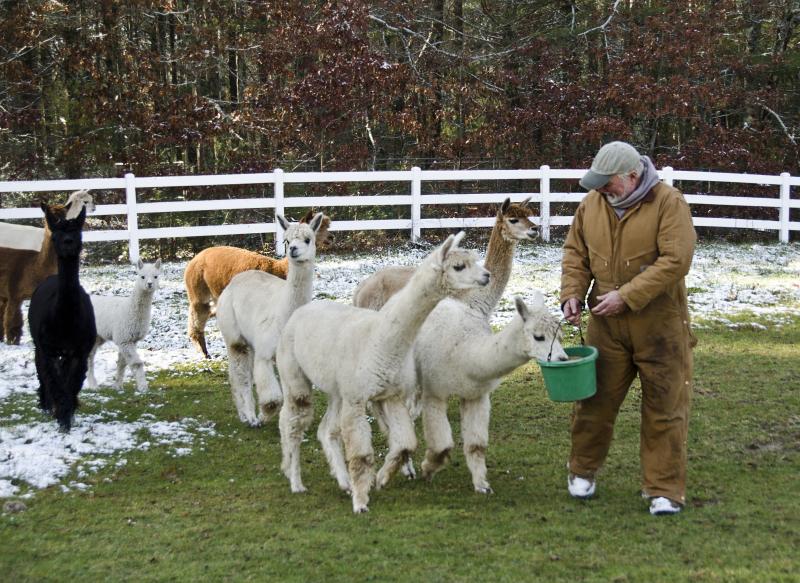Getting wooly with Sippican River Farm
Alpaca are cute, fluffy and friendly, but you probably want to avoid leaning in for a snuggle.
“They’re inquisitive. They’re sweet … but they’re not interested in being hugged,” says Bronie Rozenas.
He and his wife Cheryl have raised alpacas since 2005 from their secluded corner of Rochester.
Tucked away down a long dirt road is Sippican River Farm, 32 acres of fields and forest that the herd of 13 alpaca calls home.
It’s also wool central for the Rozenas’ small business selling alpaca products, from hats and mittens to dryer balls and finger puppets.
The Rozenas moved to Rochester in 2001 after selling their farm in Raynham where Cheryl taught horseback riding.
“We were just tired of it – the work, the overhead,” said Cheryl.
But the couple didn’t want to give up farm life.
“We love farming, so we needed something,” Cheryl said.
In Rochester, they also had a lot of land. In the past, the Rozenas had kept pigs, chickens and, for a while, cattle. The latter didn’t turn out to be their cup of tea.
“We had them all named. What are you going to do, eat them?” asked Cheryl.
Bronie brainstormed an animal that would be a good fit for the new farm. It only took him a day to come up with alpaca as an option.
“We started researching and thought it would be a good thing to do,” said Cheryl.
The alpaca will never show up on the Rozenas’ dinner table, so Cheryl could name them to her heart’s content (ie. Molly, Ivan and Luigi, to name a few.)
The Rozenas started out with two alpaca, and said it was a little rough going at first.
“We didn’t have good luck when we first started,” said Cheryl. “Knock on wood, things are turning around.”
While Bronie works full time as an engineer with GE, Cheryl spends her days on the farm, most often working on products to sell at farmers markets.
The alpaca are shorn in May and produce about 150 pounds of fleece each year. Some of it is sent to a co-op in Fall River to be made into hats, gloves and other products, but Cheryl and Bronie keep as much of it as possible.
The couple clean and card the fleece, and Cheryl spins it into yarn. She then knits a variety of items that are always the most popular pieces at the Sippican River Farm’s stand.
Cheryl keeps track of where the yarn comes from and tags mittens and hats with the name and photo of the alpaca that contributed the fleece.
“This is what sets us apart,” said Cheryl. “We do [a lot] of our own processing, spinning and needle felting.”
Cheryl would like to make everything herself, but she said, “If I took all of their fleece, I could not do it in a year. If I did it 24-7, I don’t think I could do it.”
The Rozenas’ customers are happy to get the warm wool, and Cheryl said it’s often a good alternative for those who are allergic to sheep wool and lanolin.
Plus, “It’s a little bit softer, lighter and warmer,” she said.
The couple hopes the alpaca farm can be their “retirement fund,” but for now they’re still getting the business up and going. Although it’s hard work, they wouldn’t have it any other way.
“It’s got to be in your blood,” said Cheryl. “We love the whole idea of it. We love the animals.”
Meet the alpaca, including baby Napoleaon, at the Rozenas open house on Dec. 21 from 11 a.m. to 4 p.m.
They will have items for sale as well. Sippican River Farm is located at 32 Bates Rd.
For more information, visit sippicanriverfarm.com.

















